All About Paid in Full vs. Settlement on a Credit Report
Your credit report is one of the main pieces of evidence that a financial institution will use to deem you worthy of any loan or line of credit that you are applying for. If you have old debts that you want to clear, it is important to know whether a will help raise your score and provide lenders with a better financial snapshot.
There are many decisions you have to make when you want to take care of debt. Whether you pay in full or negotiate a settlement, you will need to be aware of the impact it should make on your credit report. If you need assistance with cleaning your credit report, DoNotPay can help.
What Is Paid in Full?
A debt that has been paid in full is a debt where you have paid all the money that you owed, including any interest or fees that were added to the debt. Once this debt is paid in full, the creditor should notify the credit bureaus that the debt has been paid. Any late or missed payments, however, may still impact your credit score for up to ten years, regardless of the paid status of the debt, unless the debt itself is removed from your credit report.
What Is a Debt Settlement?
is a way to clear debt without having to pay the full amount. Instead of paying what you owe, you can negotiate with the creditor to pay a percentage of the total debt to have the debt marked as settled. A settled debt may have less of a positive impact on your credit score than a paid-in-full debt.
A settlement is often used when you cannot pay the full amount, but you want to have the creditors cease contact in the future. Settlements may not be offered to you by the creditor unless your debt is at least six months past due.
Is a Paid in Full Debt Better Than a Debt Settlement?
will both give you the option to improve your financial situation. However, a debt settlement will have less of an impact on your overall credit report and credit score than paying a debt in full. Some of the added benefits you may get from a paid in full debt include:
- Getting rid of an old debt
- Removing a history of late payments
- A boost in your credit score
Strategies for Disputing Items on Your Credit Report
You need a good credit report. If a negative item on your credit report is preventing you from making your next big financial decision, it is important to have strategies that will help you dispute these items, particularly when those debts are not yours.
| Contact Credit Bureaus | The main credit bureaus are the institutions that provide your financial information to those with decision-making power on loans, mortgages, lines of credit, and other financial products. To dispute an item on your credit report, you will need to write a dispute letter and provide evidence that shows it is in error. |
| Contact the Creditor | If the credit bureaus don't have enough evidence that the credit item is in error, you can contact the creditor directly. If you write a dispute letter to them with evidence, you may be able to prove to them that they have the item on the wrong person's credit report. |
Clean Up Your Credit Report With the Help of DoNotPay
If you have settled or paid a debt in full, and it still appears as a negative item on your credit report, you have the right to correct the situation. Cleaning up your credit report with the help of DoNotPay can get your financial snapshot where it needs to be.
How to Clean Up Your Credit Report Using DoNotPay:
If you want to clean up your credit report but don't know where to start, DoNotPay has you covered in 3 easy steps:
- Search Clean Credit Report on DoNotPay.
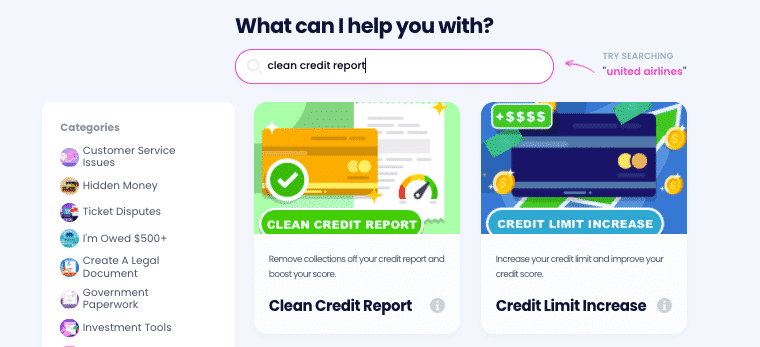
- Prepare a recent copy of your credit report that you can use as reference.
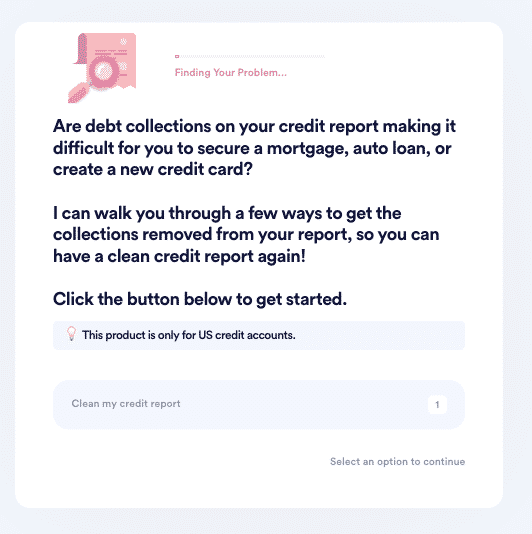
- Let us guide you through the 4 potential options:
- If you've already paid off your debt, we'll help you file a Goodwill Removal Request to get it removed.
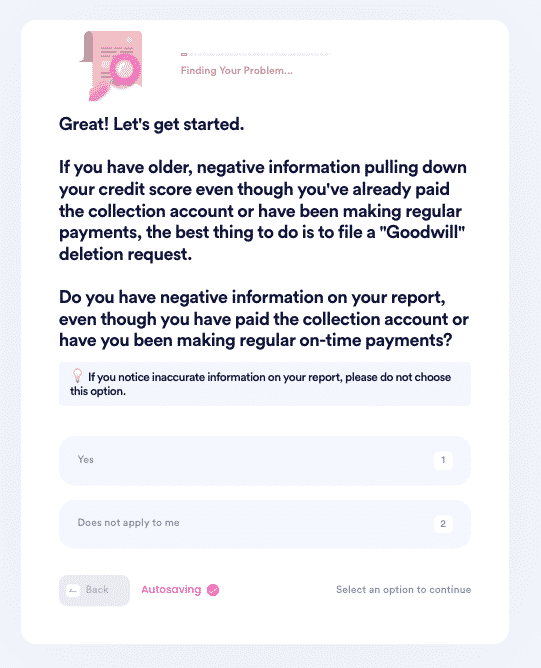
- If you notice any errors in your report (we have a list of common errors you can use!), we'll help you file a credit dispute to the creditor or major credit bureaus.
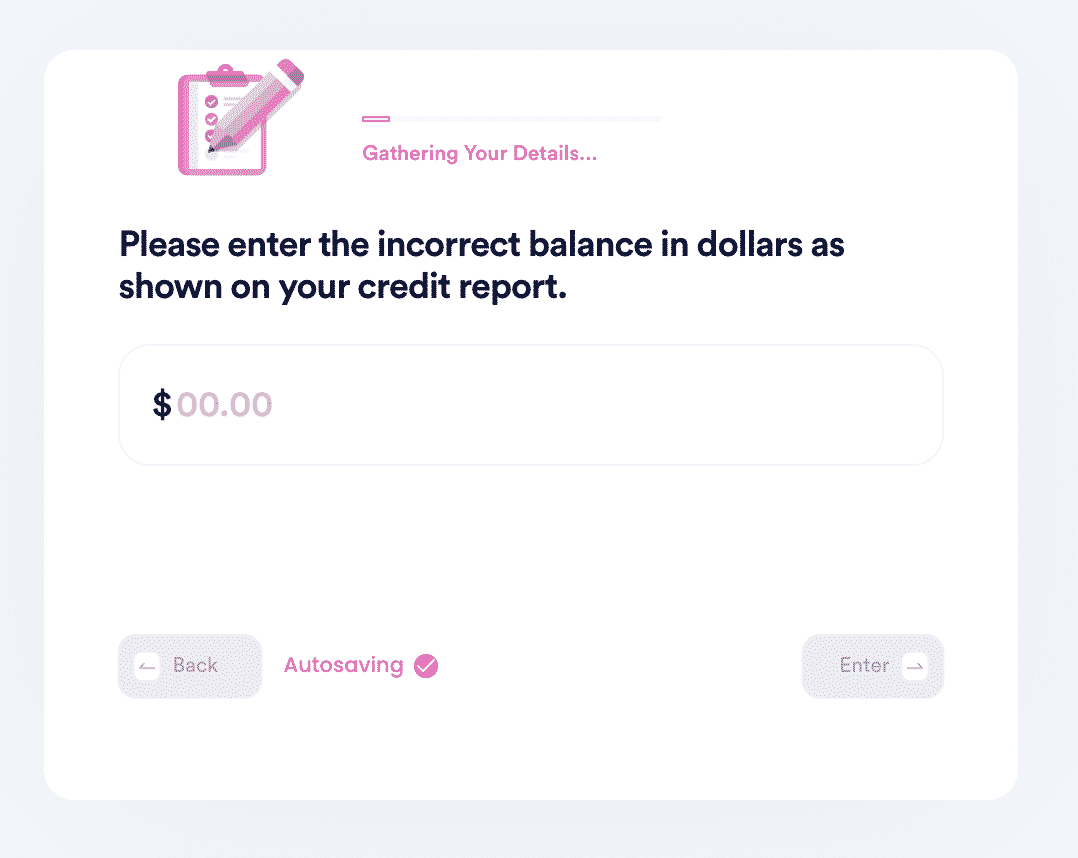
- If there are no errors, we'll check if you're still eligible to file a debt validation request. If they can't validate your debt, they're required to remove it from your report and they can't collect it!
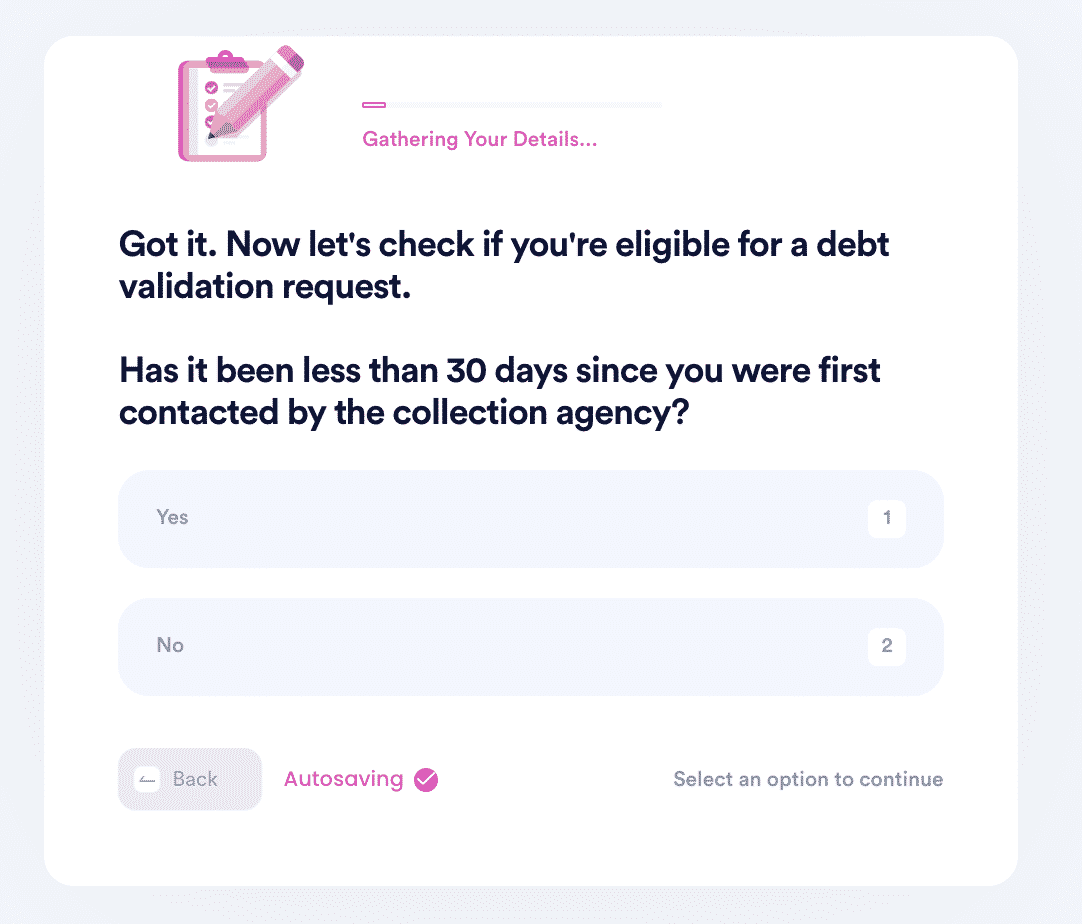
- Lastly, if none of the above options work, we'll help you file a pay-to-delete negotiation letter. You can customize the amount you are willing to pay in exchange for getting the item removed.
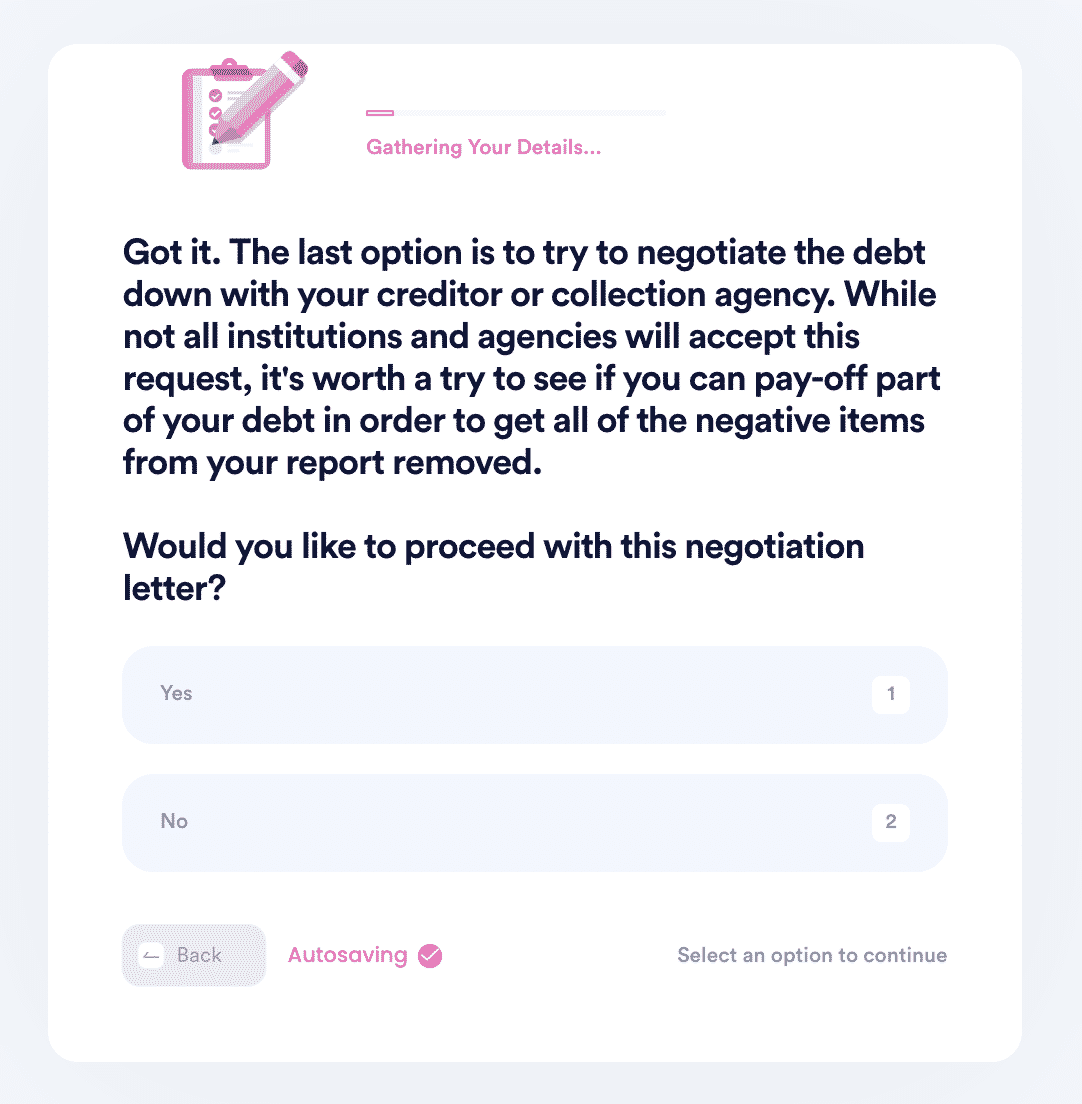
And that's it! You can also check out our other credit products, including Credit Limit Increase, Get My Credit Report, Keep Unused Cards Active, and more.
What Other Tasks Can DoNotPay Do for You?
When it comes to your everyday tasks, DoNotPay has the steps you need to get them done quickly and easily. Some of the tasks that DoNotPay can help you with include:
- Creating standard legal documents
- Filing a complaint
- Take care of parking tickets
- Cancel your unwanted subscriptions
These are just a few examples of what DoNotPay can help with whenever you need it.
 By
By